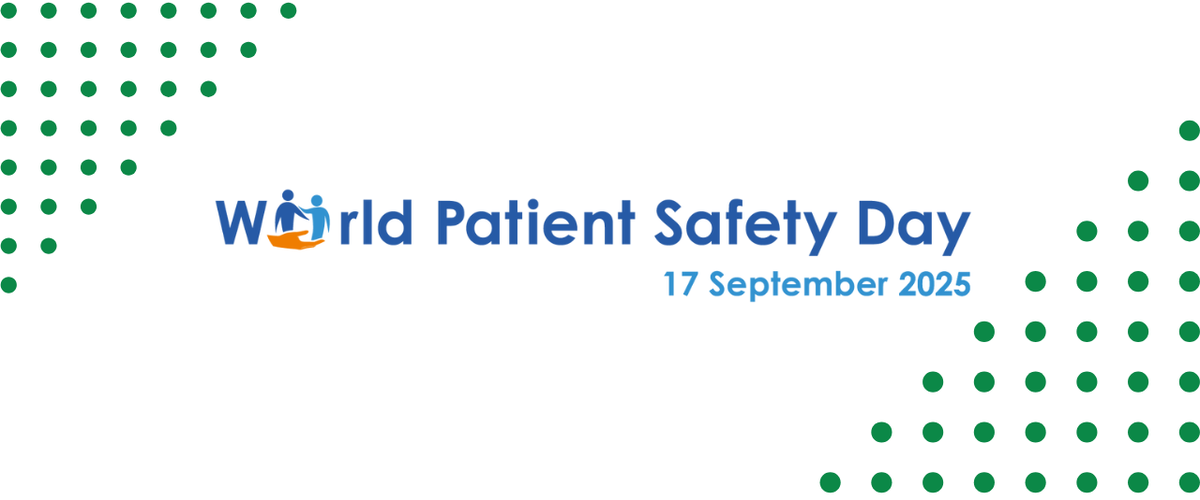
Safe care for every newborn and every child
The theme for World Patient Safety Day this year is ‘Safe care for every newborn and every child’, with the slogan ‘Patient safety from the start!’, recognising the vulnerability of this age group to risks and harm caused by unsafe care.
WHO calls for urgent action to eliminate avoidable harm in paediatric and newborn care, with the aim to drive meaningful improvements and reaffirm every child's right to safe and quality care.

Rosie Benneyworth, Interim Chief Executive at HSSIB, says: “We fully support the World Health Organization’s call for every newborn and every child to have access to safe, high-quality care.
“Through our work here at HSIB/HSSIB, we’ve published 23 reports with more than 60 recommendations that aim to improve the safety of care for babies and children. These range from an early report investigating concerns relating to the ingestion of button batteries by children under 5 years old, to our exploratory review of maternity and neonatal services published last month.
“A key objective of World Patient Safety Day is working together to make healthcare safer, which we here at HSSIB are committed to. This is demonstrated through our strategic themes of being a strong and inclusive voice across the system, building professional patient safety investigation expertise and putting people at the heart of what we do.”
Key reports
We’ve published 23 reports that aim to improve care for patients, including newborns and children:
- Transition from child and adolescent mental health services to adult mental health services
- Undetected button and coin cell ingestion in children
- Undiagnosed cardiomyopathy in a young person with autism
- Summary of themes arising from the HSIB maternity programme
- Severe brain injury, early neonatal death and intrapartum stillbirth associated with group B streptococcus infection
- Neonatal collapse alongside skin-to-skin contact
- Delays to intrapartum intervention once fetal compromise is suspected
- Never events: analysis of HSIB’s national investigations
- Severe brain injury, early neonatal death and intrapartum stillbirth associated with larger babies and shoulder dystocia
- Wrong site surgery - wrong tooth extraction
- Management of chronic asthma in children aged 16 years and under
- Suitability of equipment and technology used for continuous fetal heart rate monitoring
- Recognition of the acutely ill infant
- Weight-based medication errors in children
- Emergency neonatal blood transfusion at birth following acute blood loss during labour and/or delivery
- Provision of care for children and young people when accessing specialist gender dysphoria services
- Management of preterm labour and birth of twins
- Detection of jaundice in newborn babies
- Non-accidental injuries in infants attending the emergency department
- Clinical investigation booking systems failures: written communications in community languages
- Keeping children and young people with mental health needs safe: the design of the paediatric ward
- Mental health inpatient settings: Supporting safe care during transition from inpatient children and young people’s mental health services to adult mental health services
- An exploratory review of maternity and neonatal services
Fostering collaboration
Reflecting one of the objectives of World Patient Safety Day – working together to make healthcare safer – over the past two years HSSIB has chaired the Recommendations to Impact Collaborative Group. The group, with more than 30 national and international members, worked together to increase collaboration and efficiencies in how safety recommendations made to the healthcare system in England are developed, shared and implemented.
The group published a report that coincided with World Patient Safety Day 2024 titled Recommendations but no action: improving the effectiveness of quality and safety recommendations in healthcare.
Get involved
If you would like to get involved in World Patient Safety Day 2025, visit the WHO website to find out more and look out for the illumination of iconic landmarks and public places around the world – including the Jet d’Eau fountain in Geneva – in orange, the signature mark of the campaign.
Related articles

Education team present safety investigator competencies work at annual human factors conference
Read article


